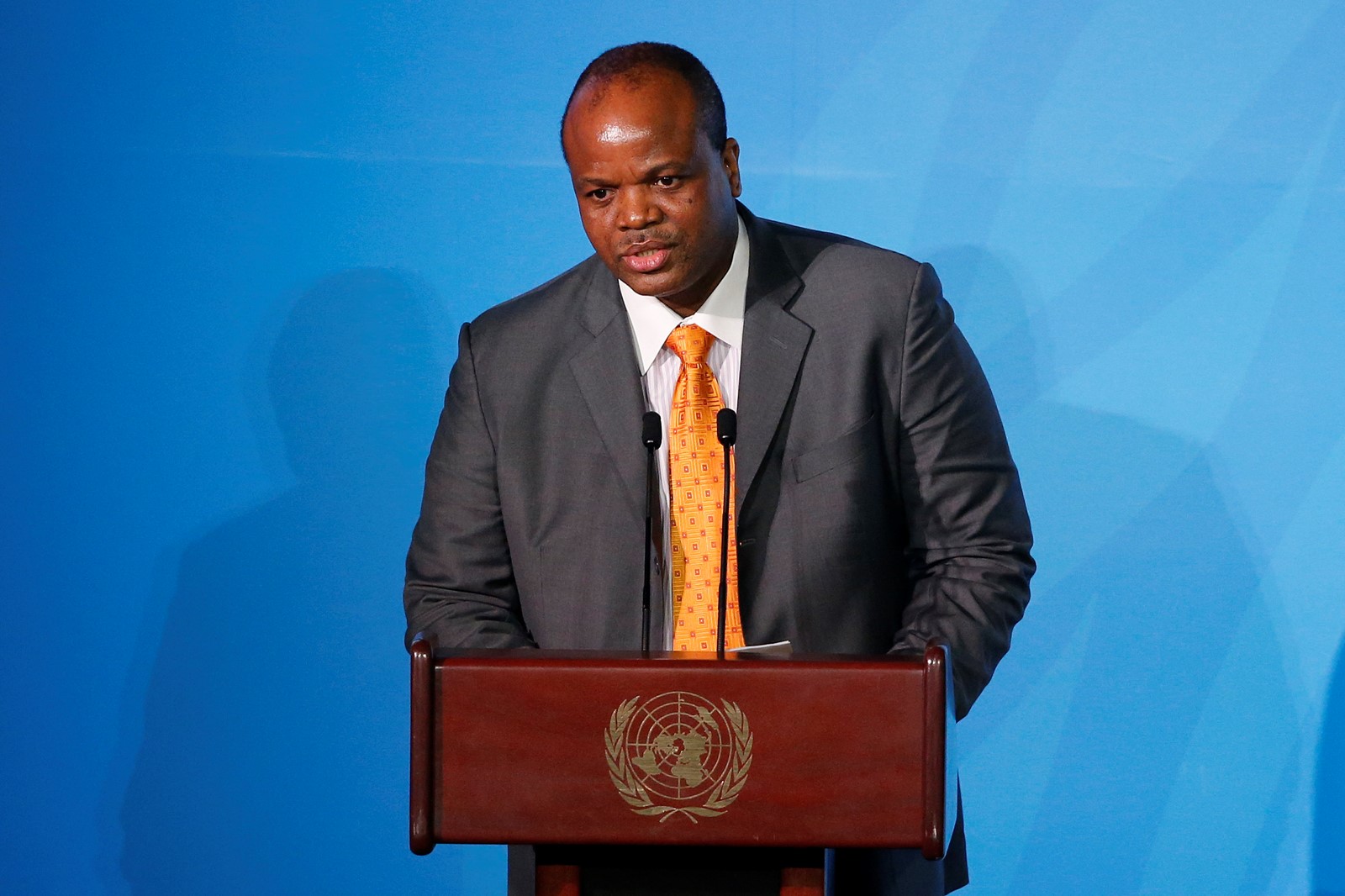CAPE TOWN, South Africa — The United States has sent five immigrants it says were convicted of serious crimes to the African nation of Eswatini, the U.S. Department of Homeland Security confirmed, in an expansion of the Trump administration’s largely secretive third-country deportation program.
The U.S. has already deported eight men to another African country, South Sudan, after the Supreme Court lifted restrictions on sending people to countries where they have no ties. The South Sudanese government has declined to say where those men, also described as violent criminals, are after it took custody of them nearly two weeks ago.
In a late-night post on X on Tuesday, Homeland Security Assistant Secretary Tricia McLaughlin said the five men sent to Eswatini, who are citizens of Vietnam, Jamaica, Cuba, Yemen and Laos, had arrived on a deportation plane.
She said they were all convicted criminals and “individuals so uniquely barbaric that their home countries refused to take them back.”
The men “have been terrorizing American communities” but were now “off of American soil,” McLaughlin added.
McLaughlin said they had been convicted of crimes including murder and child rape and one was a “confirmed” gang member. Her social media posts included mug shots of the men and what she said were their criminal records and sentences. They were not named.
It was not clear if the men had been deported from prison or if they were detained in immigration operations, and the Department of Homeland Security and U.S. Immigration and Customs Enforcement didn’t immediately respond to requests for clarification.
The Eswatini government said Wednesday the men, which it referred to as “prisoners” and “inmates,” were being held in isolated units in unnamed correctional facilities in Eswatini but were considered to be in transit and would ultimately be sent back to their home countries.
In a series of posts on X, the Eswatini government said it and the U.S. would collaborate with the United Nations’ migration agency to facilitate that. It gave no timeframe for that to happen but said that it would ensure “due process and respect for human rights is followed” in what it described as a repatriation process.
Four of the five countries where the men are from have historically been resistant to taking back some citizens when they’re deported from the U.S. That issue has been a reoccurring problem for Homeland Security even before the Trump administration. Some countries refuse to take back any of their citizens, while others won’t accept people who have committed crimes in the U.S.
Eswatini, previously called Swaziland, is a country of about 1.2 million people between South Africa and Mozambique. It is one of the world’s last remaining absolute monarchies and the last in Africa. King Mswati III has ruled by decree since 1986.
Political parties are effectively banned and pro-democracy groups have said for years that Mswati III has crushed political dissent, sometimes violently.
Pro-democracy protests erupted in Eswatini in 2021, when dozens were killed, allegedly by security forces. Eswatini authorities have been accused of conducting political assassinations of pro-democracy activists and imprisoning others.
Like with South Sudan, rights groups criticized the Trump administration’s choice to send the deportees to Eswatini, given its record.
Amy Fischer, Amnesty International USA’s director of refugee and migrant rights, said the U.S. State Department’s own 2023 human rights report found credible accounts of unlawful or arbitrary killings by security forces in Eswatini, impunity for abuses, and harsh prison conditions.
“As a result, anyone returned to this country is at risk of serious human rights violations. The cruelty is the point,” she said.
The Trump administration has said it is seeking more deals with African nations to take deportees from the U.S. Leaders from some of the five West African nations who met last week with President Donald Trump at the White House said the issue of migration and their countries possibly taking deportees from the U.S. was discussed.
Some nations have pushed back. Nigeria, which wasn’t part of that White House summit, said it has rejected pressure from the U.S. to take deportees who are citizens of other countries.
The U.S. also has sent hundreds of Venezuelans and others to Costa Rica, El Salvador and Panama, but has identified Africa as a continent where it might find more governments willing to strike deportation agreements.



 PREVIOUS ARTICLE
PREVIOUS ARTICLE
